#Xawery Dunikowski
Explore tagged Tumblr posts
Text

Xawery Dunikowski
Fatum, 1904
73 notes
·
View notes
Text
sculptures* round 1 poll 29


Multiple portrait by Alina Szapocznikow, 1967:
[no propaganda has been submitted]
Maternity by Xawery Dunikowski, before 1908:
propaganda: the violence of birth etcetera, amirite?
25 notes
·
View notes
Photo
Pomnik wyzwolenia ziemi Warmińsko-Mazurskiej
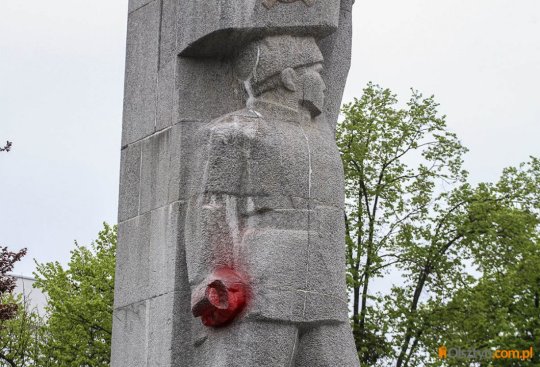
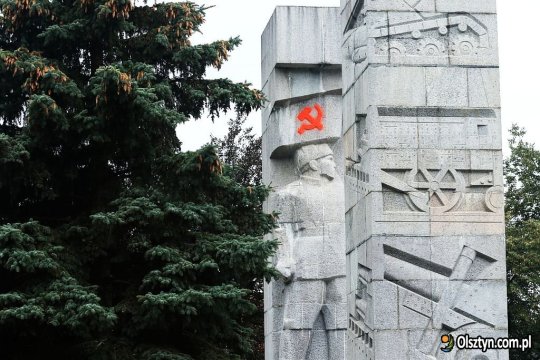

monument of gratitude to the Red Army by Xawery Dunikowski, in Olsztyn
13 notes
·
View notes
Text
Ranking all the seven Chopin sculptures🗿found in his birthplace! 🏡
📍 Dom Urodzenia Fryderyka Chopina, Żelazowa Wola 15
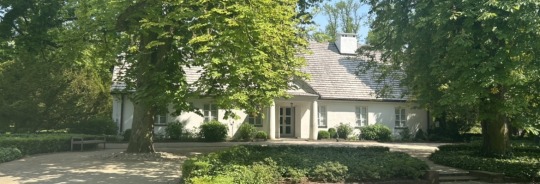
Choppy was borned here on 1/3/1810. Although the Chopin family moved to Warsaw on the autumn of the same year, they visited Żelazowa Wola for vacations and family events.
1. Chopin’s bust (Stanislaw Sikora)
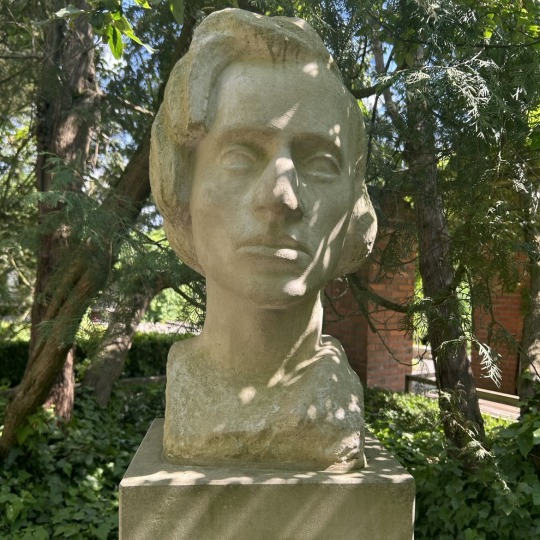
Rating: 5/5 😻
This really looks a lot like Choppy❤️ His hair looks exactly like his photo in 1849! 😳
2. Chopin’s head with his eyes closed (Xawery Dunikowski, 1925-1929)
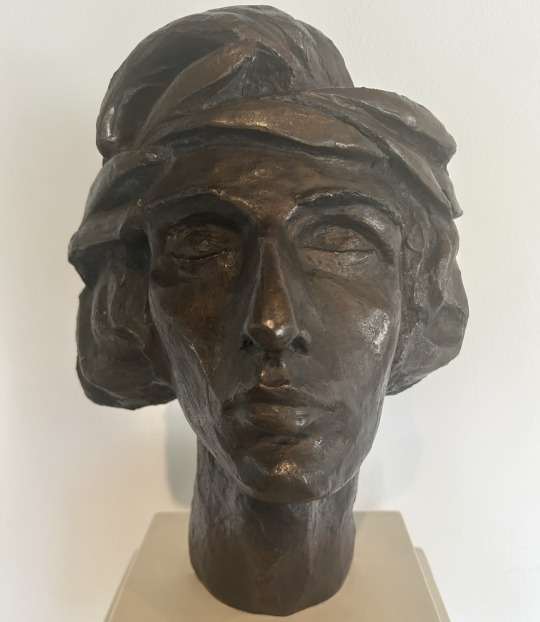
Rating: 4.5/5 😍
Choppy sleeping…😴Cute!!! But it will be better if his eyes are open haha. 👀
3. Chopin’s bust (Antoni Madeyski, 1933)
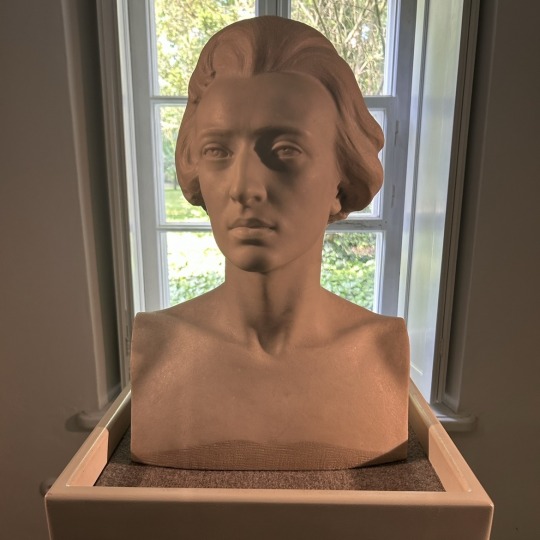
Rating: 5/5 😇
His hair looks a bit off but I really like the details of Choppy’s eyes👀 ✨He looks so alive and fine. 🥰
4. The first ever Chopin Monument in Poland!🇵🇱 (1894)
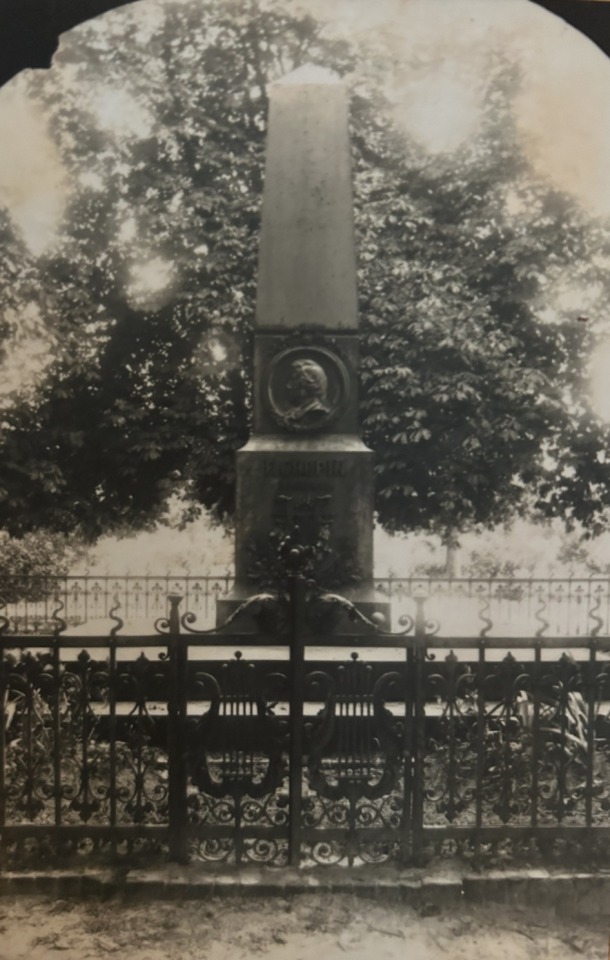
On 14 October 1894, the first Chopin monument on Polish soil was unveiled. It was shaped like a gravestone, since that was the only form allowed by the imperial authorities of those times.
Rating: 4/5 🤩
I can’t really see the details of his face profile, so…
5. Chopin hugging himself?? 🤣🫂 (Jozef Sosławski, 1954)
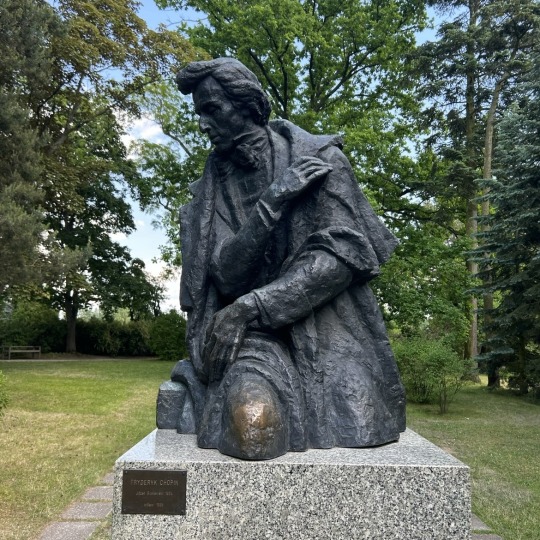


Rating: 6/5 ���😍🤤
This is my favourite Choppy sculpture! The expression on his face is just ✨✨✨ And his outfit is PERFECT. 😘👍
6. Chopin’s bust 😌

Rating 3/5 🥸🥵
What happened to his hair?! It’s tooooooo long LOL 😂 And Choppy looks so sad and long…😞
7. Chopin standing still🕴🏻
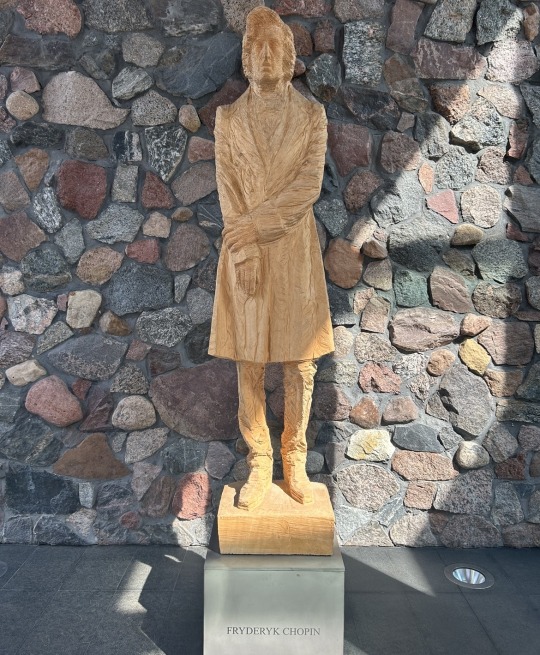
Rating: 5/5 😎
I feel like Choppy totally positioned his hands like this when standing in public hehe. ☺️ And I love his coat! 🧥❤️
31 notes
·
View notes
Text









Sara or Sarah Lipska Polish sculptor, interior designer, set designer and costume designer
SARA LIPSKA (1882-1973) was born into a wealthy Hassidic Jewish family in Mława, Poland, which was at the time under the occupation of the Russian Empire. Via AWARE
#BornOnThisDay Dec 7, 1882, Mława, Poland
Died: Nov 28, 1973, Paris, France
see the link for captions credits and more!
palianshow.wordpress.com/2023/12/07/sarah-lipska
www.polishfashionstories.com/we-love-1/2021/09/06/sara-lipska
Must read: Her artistic roots date back to the years of her studies at the Warsaw School of Fine Arts (later the Academy of Fine Arts), but she spent most of her professional life in Paris, where she left at the end of 1912. At that time, the capital of France was a place attracting artists and giving them great creative opportunities. The centre of fine arts, theatre, ballet, music, and fashion offered many opportunities for artistic development. It was also a time of change, emerging trends, lifestyles, and women's role in society. It gave freedom of choice and undoubtedly inspired the artist to act.
BY EWA ZIEMBIŃSKA, PHD
Chief Curator at the Xawery Dunikowski Museum of Sculpture, National Museum in Warsaw
🇵🇱 SARA LIPSKA polska malarka, rzeźbiarka, projektantka mody i wnętrz, pochodzenia żydowskiego, od 1912 przebywająca w Paryżu. Via Wikipedia PL
Zobacz również: (...) Faktem jest, że twórczość artystki była zapomniana, niedoceniana i niemalże całkowicie w Polsce nieopracowana. Dziś – w dużej mierze dzięki kuratorce warszawskiej wystawy Ewie Ziembińskiej– wiemy, że pomimo wielu trudności życiowych, Lipska osiągnęła ogromny sukces i tym samym, nie powinna być postrzegana w kategorii kolejnej, tragicznej postaci w historii sztuki polskiej. źródło i więcej: (2013) https://rynekisztuka.pl/2013/03/12/czy-naprawde-sara-lipska-zyla-w-cieniu-mistrza

#SARALIPSKA #fashionmemories #lovefashion #palianshow #fashionherstory #sztukakobiet #historyoffashion #EwieZiembińskiej #SARAhLIPSKA #artbywomen #sztuka #textiledesigner #textileart #fashiondesigner #polishfashionstories #PalianShow @abwwia
#SARA LIPSKA#sztuka kobiet#polish art#polish women artists#art#art by women#sztuka#sarah lipska#herstoria
5 notes
·
View notes
Text
Permeation
Agnieszka Brzeżańska, Judith Hamann
@ MOS, Gorzów Sep 13—Oct 20, 2024 sound performance by Judith Hamann: Oct 19, 2024 at 6 pm
Permeation juxtaposes the recent paintings and sculptures of Agnieszka Brzeżańska with the sound installation and drawings by Judith Hamann. The joint exhibition of two interdisciplinary artists, who use a variety of methods and approaches in their work, subjecting the surrounding world to sensitive observation and listening, creates a space for experience and joint contemplation of the immediate future.
Agnieszka Brzeżańska uses a variety of media, focusing on the relationship between living beings and other entities inhabiting the Earth. In what appear to be abstract images, her search is for the representation of that which remains beyond the boundaries of anthropocentric reality. Biomorphic shapes represent extraterrestrial bodies, lost, non-existent or imagined entities. Brzeżanska works with a precise, formal shorthand, which can be seen in compositions built from almost a single line—delicately swirling, forming regular circles like ripples on the water, or spreading out in many directions.
Disorderly thoughts/forms, phantoms smiling mysteriously, or perhaps representations of nature, which, according to Agnieszka Brzeżańska, is in principle favourable to all beings? The artist’s ceramic sculptures from recent years seem to capture her interests and fascinations in both form and meaning. The collection of candelabra-like objects with organic shapes (Metaphor of Everything, 2017) is presented as an installation and serves as a symbolic element in the exhibition. Set on mirrors and equipped with candles that are lit during the visit, the figure- like plants enhance the polysensory dimension of the exhibition, while inviting a more intimate contact with the art.
The intangible element that fills the exhibition space is sound, present in the form of Judith Hamann’s audiospheric installation. The composition, based on field recordings, is only a small part of Hamann’s wider research-performative practice, which is rooted in experiments with the instrument and the non-human voice. Hamann refers to the many audible and perceptible properties of sound as a living medium that not only accompanies humans but is above all an intrinsic part of nature. In addition to the auditory form, the exhibition presents an excerpt from the series Paper Membranes (2020/24), for which Judith Hamann uses the technique of frottage, treated as a performative action akin to field recording. She imagines landscapes, interior and exterior spaces as ‘recordings’ made up of the surface of a wall, the trunk of a tree or the texture of a stone. These become part of a single trace, a recording of an impossible-potential landscape.
Agnieszka Brzeżańska (born in Gdańsk) studied at the Academy of Fine Arts in Gdańsk and Warsaw in Prof. Stefan Gierowski’s Painting Studio, and at the Tokyo University of Fine Arts and Music. Her work includes paintings, drawings, photography, film, ceramics and other media. Brzeżanska draws on various registers of knowledge, from physics and philosophy to systems of cognition marginalised by modern science, such as alchemy, parapsychology, esotericism, indigenous knowledge or matriarchal traditions. Since 2016, she has been organising Flow/Przepływ, an artist residency on the Vistula River, together with Ewa Cieplewska. She has presented her works in many solo exhibitions, most recently including ‘Incantations and Ancestors’, Willa Polonia Gallery in Busko-Zdrój (2023), ‘Ancestors’, BWA Warszawa (2023), ‘So Remember The Liquid Ground’, eastcontemporary in Milan (2021), ‘World National Park’, Królikarnia, The Xawery Dunikowski Museum of Sculpture — a division of the National Museum in Warsaw (2019), Gdansk City Gallery (2018). She took part in the 10th Berlin Biennale for Contemporary Art (2018). She collaborates with the BWA Warszawa gallery in Warsaw and the Nanzuka gallery in Tokyo. She lives and works in Warsaw.
Judith Hamann (born in Naarm/Melbourne, Australia) is a composer, performer and sound art maker. They are described as an “extraordinary Australian cellist” (the Guardian) who “destroys the fiction of the musician who lives and works outside conventional parameters and puts in its place a series of compositions that are fundamentally humane” (WIRE). Hamann’s work encompasses performance, improvisation, electro-acoustic composition, field recording, electronics, site specific generative work, and micro-tonal systems in a deeply considered process based, or even ‘nomadic’ approach to creative practice. Hamann explores acts of shaking and humming as formal and intimate encounters; explores ‘collapse’ as a generative, imagined surface; and considers the ‘demystification’ of bodies, both human and non-human, in the context of instrumental practice and the pedagogy of colonial heritage. They have performed at festivals such as Tectonics (Glasgow, Athens, etc.), UnSound (NYC), Sonic Acts (Amsterdam), Maerzmusik (Berlin), CTM (Berlin), Biennale Musica — The International Festival of Contemporary Music (Venice), Tokyo Experimental Festival (Tokyo), and AURAL (Mexico). Hamann enjoys thinking and working with other artists which includes Marja Ahti, Joshua Bonnetta, Pascale Criton, Charles Curtis, Sarah Hennies, Yvette Janine Jackson, and Anike Joyce Sadiq. Their music was released on labels including Blank Forms, Black Truffle, Another Timbre, and Longform Editions. They hold a Doctor of Musical Arts from UC San Diego. Judith Hamann lives and works in Berlin.
Text by Romuald Demidenko Contemporary Art Library
0 notes
Text

Maria Pinińska-Bereś, The Banner, 1980, performance documentation, Courtesy Maria Pinińska-Bereś and Jerzy Bereś Foundation & Galeria Monopol | https://awarewomenartists.com/en/artiste/maria-pininska-beres/
Born: August 17, 1931, Poznań, Poland
Died: April 20, 1999 (age 67 years), Kraków, Poland
0 notes
Text

Jewish author pretends that a well-known Polish Olympian was Jewish…. I've never read Agnes Grunwald-Spier's book, “Who Betrayed the Jews?”, which includes a chapter about "30 Jewish Olympians killed in the holocaust", but according to a review of the book by Matt Lebovic in the Times Of Israel, "one of these heroes was renowned skier Bronisław Czech, who represented Poland in three Olympic Games and later ran one of Poland’s top downhill skiing schools"….
Source: https://www.timesofisrael.com/the-jewish-olympians-among-hitlers-victims/
However, three-time Olympian Bronisław Czech wasn't actually Jewish. He was born into a Polish family on 25th July 1908 in the southern Polish town of Zakopane.
He became one of the most important Polish skiers of the interwar period. He was also a ski instructor, a mountaineer and rescuer, a glider pilot and later became a courier for the Polish resistance during the Second World War, transporting information between occupied Poland and Hungary.
According to Matt Lebovic, "when the Nazis began implementing the Final Solution, Czech's fame worked against him. At age 32, he was arrested and among the first prisoners sent to Auschwitz"….
What actually happened is that on 14th May 1940 (ie long before the Wannsee Conference took place in January 1942), Czech was arrested by the German Gestapo for his resistance activities, and a month later on 14th June, he was deported to Auschwitz in the first transport of Polish prisoners to the newly opened concentration camp (mass transports of Jews to Auschwitz began in early 1942, and for the first two years of the camp's operation, most of the prisoners were ethnically Polish).
He became prisoner number 349 and was assigned to Block IV. While interned in the camp Czech rejected a proposal to become a ski instructor for German troops. He later met Witold Pilecki and participated in the camp resistance movement. Until the spring of 1941, he worked in a carpentry shop with his friend Izydor Łuszczek, then in a wooden spoon factory. In 1942, he was sent to work in the camp museum. After surviving for almost four years, his health deteriorated and he was taken to the camp hospital, where he died on 5th June 1944.
Czech's death was witnessed by Polish sculptor and fellow Auschwitz inmate, Xawery Dunikowski, who made sure that the news was passed on to Czech's sister, Stanisława Czech-Walczakowa.
"I regret to inform you that your brother, Mr Bronisław Czech, has died. I knew him very well. I feel very sorry for him, because he was a young, very nice man. We were in the hospital together. He died suddenly of a heart attack in front of me, without any pain. It happened on 5th June at 12:00 noon. The moment of his death was moving. We were sitting by the window, it was a beautiful sunny day, and in front of our barracks on the camp square, the Gypsies were playing various cheerful pieces of music. When they learned from us about Bronisław's sudden death, they stopped playing. A moment later they played Chopin's funeral march"….
Every victim of Auschwitz has the right to be remembered for who they actually were. Their identities should be respected, especially as they may have relatives who are still grieving for them.
The fact that Bronisław Czech was ethnically Polish and a practicing Catholic isn't exactly difficult to establish, so it's hard to believe that Agnes Grunwald-Spier included him in her chapter about "Jewish Olympians" by mistake. I'm not sure if Matt Lebovic's comments about Czech are deliberately false, or if he's just a crap journalist who doesn't know what he's talking about and is also apparently incapable of doing a simple Google search….
#Bronisław Czech#Bronislaw Czech#Agnes Grunwald-Spier#Matt Lebovic#history#olympics#poland#polska#second world war#world war 2#auschwitz#germany#nazi germany#historical revisionism#bad history take#bad history takes
0 notes
Text


Photographer: Mateusz Sandomierski Designer: Klara Szandomirska MUA: Kinga Warakomska Models: Łukasz Szywalski X MANAGEMENT WARSAW
Sculpture by Xawery Dunikowski titled “FATUM”
0 notes
Text

Warsaw Preview is an open-air festival that takes place in various outdoor urban spaces. In a picnic-like atmosphere artists from various fields present their works accompanied by live music.
Warsaw Preview creates an open space for artists to present their works outdoors, using the topography of a natural setting placed in urban areas. They can take part in a open call or just join spontaneously the day of the event.
Main organizer: Heart of Man Gallery | Serce Exhib.
Team: Eryka Głos, Kamil Trzeci, Michalina Sablik and Milena Soporowska.
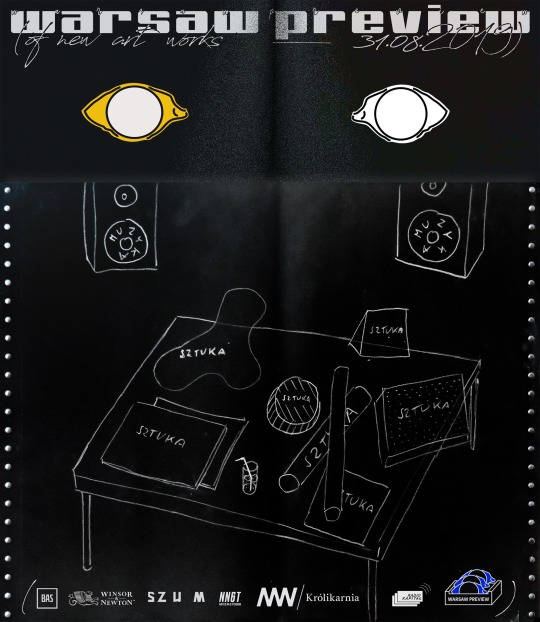
First edition took place in 2019 in the Sculpture Park in the neighbourhood of Królikarnia - Xawery Dunikowski Museum of Sculpture, part of The National Museum in Warsaw.

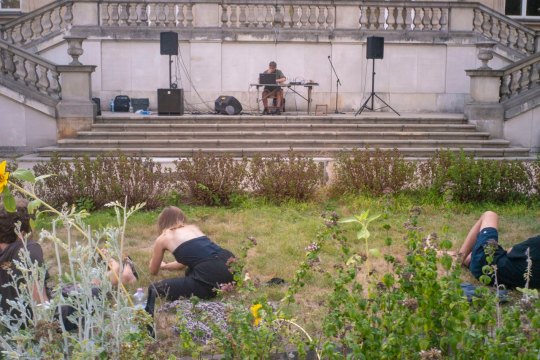
By locating our events in open spaces, art could be experienced spontaneously by passersby. It created an opportunity for a nonconventional, natural conversations outside of a traditional snobbish white-cube space.

You can read interview about the first edition of Warsaw Preview in Going.MORE lifestyle online magazine HERE.


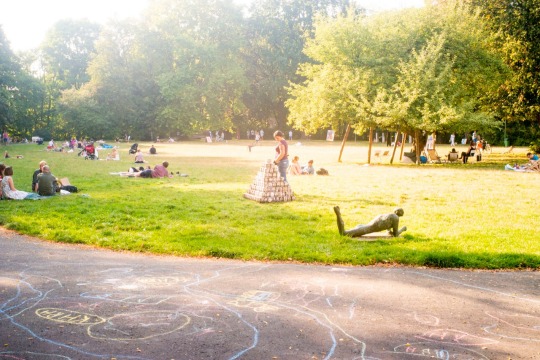
Check out interview in Radio Kapitał, where we discuss the main premise of Warsaw Preview. You can listen to it HERE.

The second edition took place during the pandemic in 2020 in the park of Open Jazdów area in Warsaw - community of the Warsaw settlement of wooden Finnish houses, offering a social, cultural and ecological public program.

In 2020 Warsaw Preview was featured in BLOK MAGAZINE, an online, English-language contemporary art journal that focuses on the region that is known as Central and Eastern Europe, as part of Polish Highlights of 2020.
You can read the whole article HERE.
❝Warsaw Preview, an open-air festival that took place during the first weekend in September, featured 30+ artists and DJ’s (in collaboration with Radio Kapital). In the midst of a pandemic and political upheaval, the atmosphere was vibrant and connective, with artists showing and sometimes selling works, re-introducing a very open, non-pretentious, human-centered approach to contemporary practices.❞

Our second event was focused on small sculpture forms. Art presentation was accompanied by music played by DJs and artists associated with Radio Kapitał - first community radio in Poland.
You can listen to some of their works HERE.

You can listen to the artists describing their sculptures with words and music in a synethesis radio interviews conducted by Milena Soporowska in Radio Kapitał HERE.
Artists taking part in radio show: Øleg and Kaśka, Paulina Jołda, Jan Możdżyński i Kuba Mozolewski.
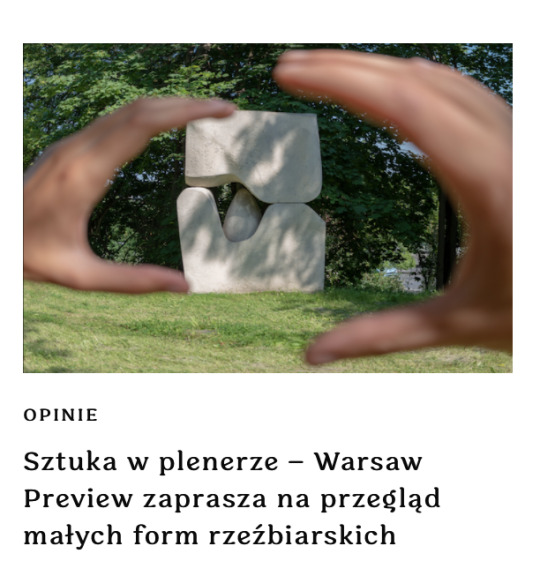

Media coverage of second edition of Warsaw Preview in Open Jazdów included two articles in Going.MORE online magazine.
🍀Interview with co-ordinators
🍀Interviews with artists taking part and photo coverage of their works

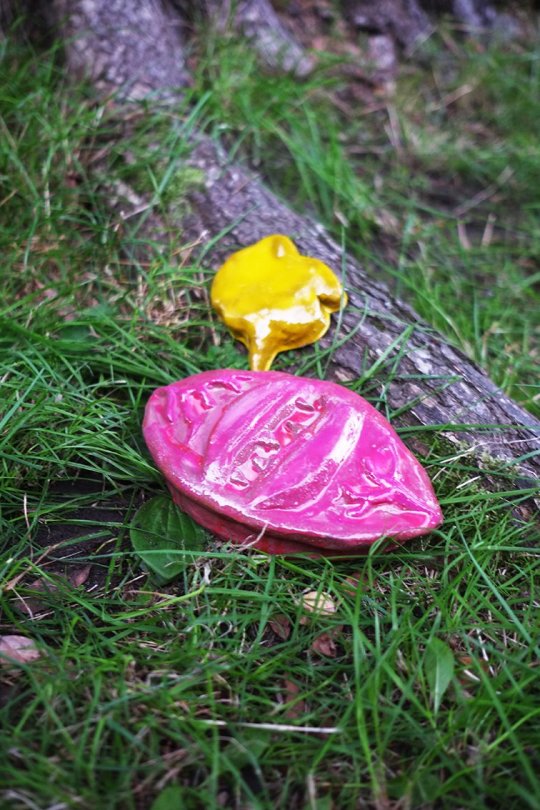

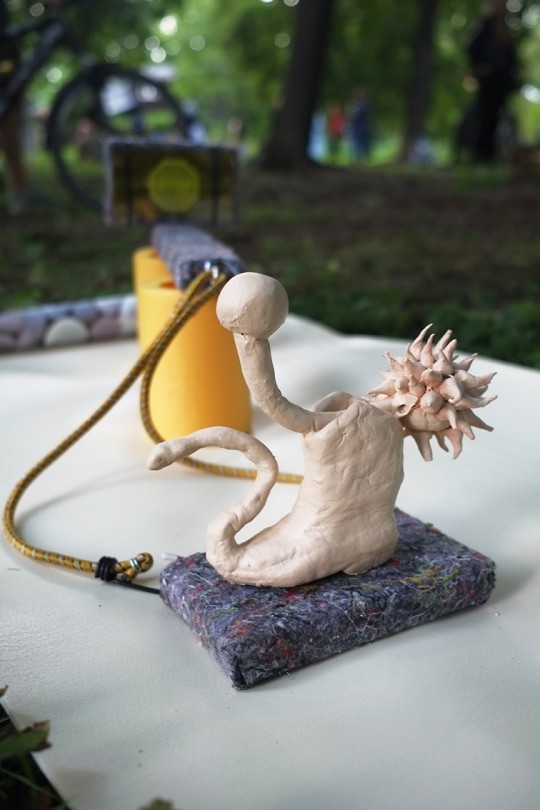

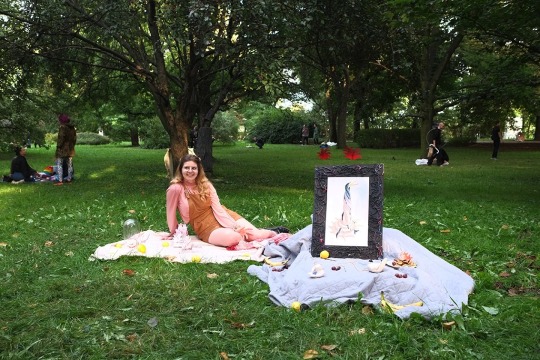

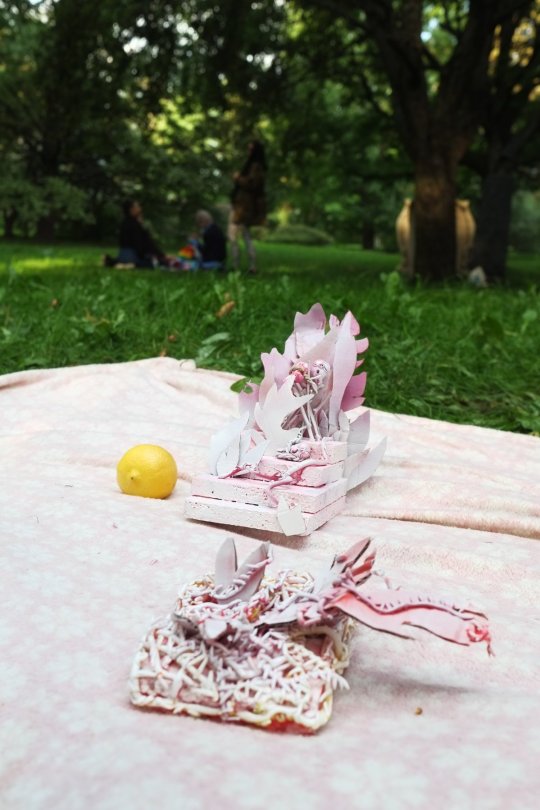
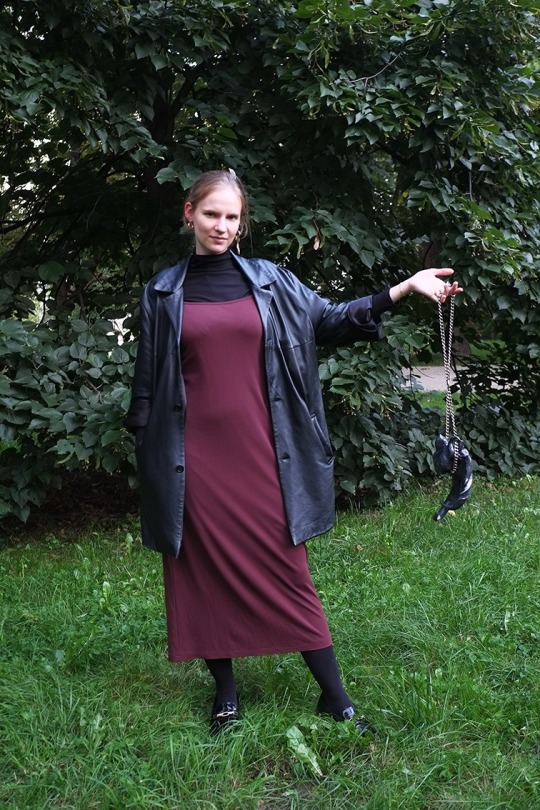

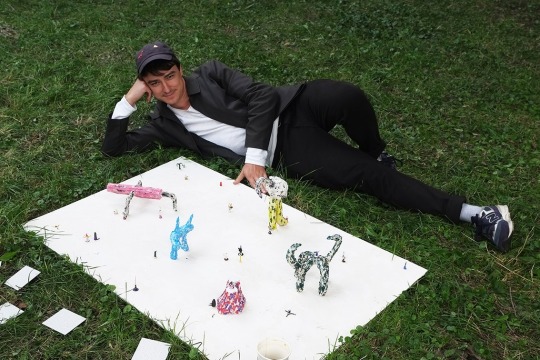

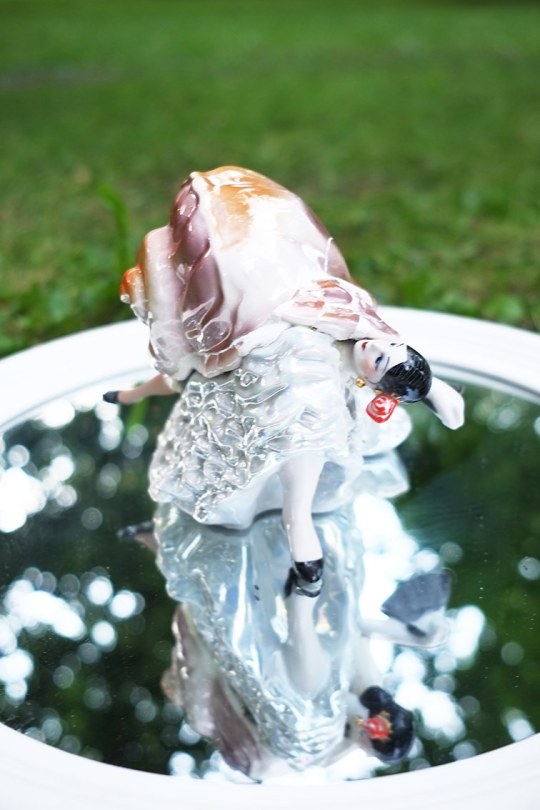
Documentation: Milena Soporowska
0 notes
Text

Christmas in Auschwitz in 1944
Xawery Dunikowski
1950
35 notes
·
View notes
Photo

Pregnant woman I by Xawery Dunikowski
33 notes
·
View notes
Photo

Xawery Dunikowski - Uczennica w wieńcu róż z cyklu Głowy wawelskie, 1926
Château Royal de Wawel, Cracovie
48 notes
·
View notes
Photo

Xawery Dunikowski - Ewa (1906)
0 notes
Photo

2 notes
·
View notes
Photo

Xawery Dunikowski - I Go Towards the Sun (1917)
27 notes
·
View notes